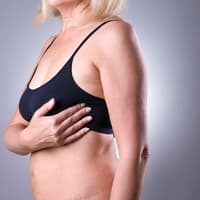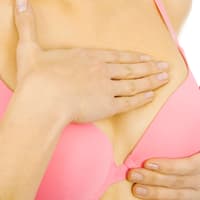
The so-called "menopause" is not a disease. Many women have few or no problems with it. For others, however, the symptoms of the menopause can certainly restrict their quality of life. We answer questions about the symptoms, complaints and duration of the menopause.
Menopause - when does it start?
On average, the menopause begins between the ages of 50 and 55, but in rare cases it can start in your mid-40s or even earlier. It depends on your predisposition. Factors such as thyroid disease, kidney weakness or diabetes can also be the cause.
How can I tell that I'm going through the menopause?
Bleeding becomes irregular, for some it is very heavy, for others it may stop altogether. Some women suffer from sweating, especially at night. Many also struggle with sleep disorders. Mood swings are another menopausal problem. However, around a third of all women have no symptoms.
Menopause: problems with the bladder
Bladder weakness during the menopause is partly due to hormones. The body now produces less oestrogen - the mucous membranes are drier and lose elasticity. In addition, the perineal muscle and the pelvic floor muscle become weaker, a sign of ageing. If those affected have also had one or more births, the pelvic floor has been put under a lot of strain, which sometimes leads to bladder weakness in old age. But you can strengthen the pelvic floor with exercise.
And why do you put on weight during this time?
In this case too, hormones are the cause. The drop in oestrogen levels slows down the metabolism and can also lead to insulin resistance, which can lead to diabetes in the long term. The basal metabolic rate decreases, which means that the body consumes fewer calories at rest. So you should pay attention to what you eat during the menopause.
Should you eat a slightly different diet overall?
Yes: more proteins and vegetables, less sugar and carbohydrates. And you should make a conscious effort to get enough exercise. However, women in the menopause should be careful with raw food, because when oestrogen levels fall, the intestines become more sensitive and muesli and raw foods can cause stomach upset. It is better to blanch the vegetables briefly, as this makes them easier to digest and preserves the vitamins.
Do you still need to use contraception during the menopause?
Yes, absolutely! Even if you don't have your period, ovulation is still possible and the egg can be fertilized. Women are best advised to talk to their gynecologist about which form of contraception is best for them.
When are they finally over?
That varies greatly. Even if it has been a year since your last period, this does not mean that the menopause is over. It is only over when the body has adjusted to the changed hormonal situation. This can take a few years or it can happen more quickly.
How long does this phase normally last?
The earlier the hormonal change begins, the longer it lasts. Normally it is around two to five years, but in individual cases it can be more than ten years.
Should I have my hormone levels tested?
Probably not. You can save yourself the money because your health insurance won't pay for it. A test will only provide clarity if you suddenly stop bleeding and a pregnancy could be possible.
What should I think of hormone replacement therapy?
It all depends on how severe the menopausal symptoms are. In some cases it makes sense, namely when those affected suffer greatly from the symptoms. Low-dose hormone replacement therapy, known as HRT, can significantly improve the quality of life of affected women.






